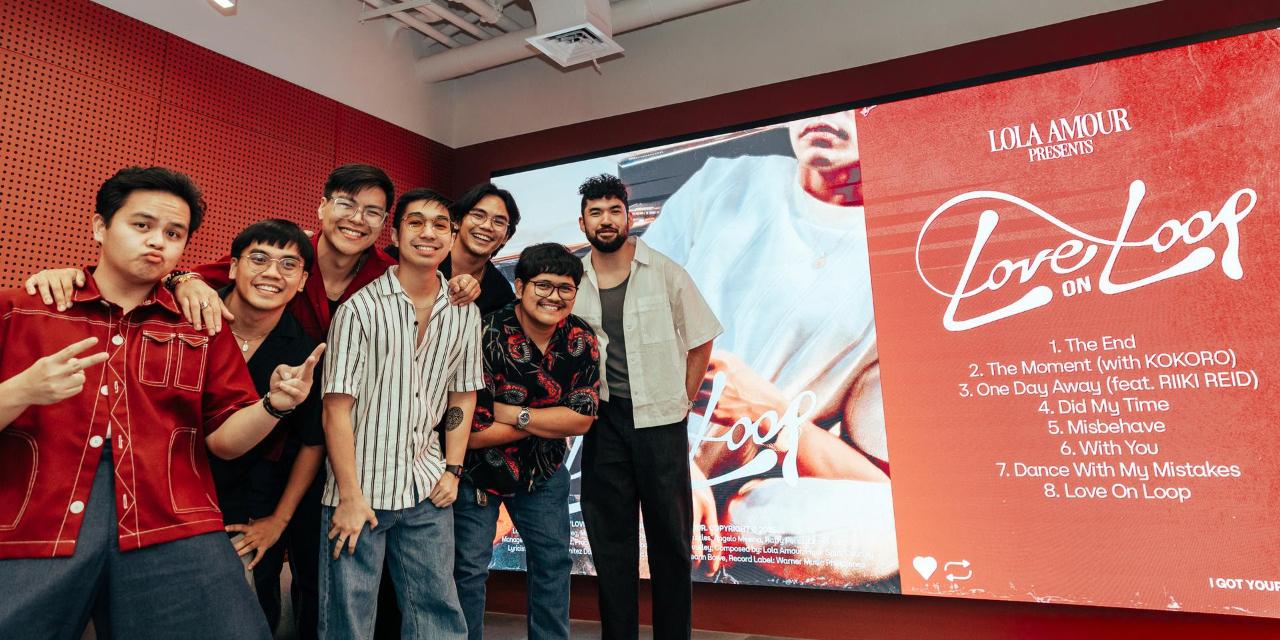
Upgrade to High-Speed Internet for only ₱1499/month!
Enjoy up to 100 Mbps fiber broadband, perfect for browsing, streaming, and gaming.
Visit Suniway.ph to learn
Published July 14, 2025 4:22pm
There are only 20 of them active in Japan, and one of them came to Manila from Japan to open the 2025 International Silent Film Festival on Friday, after a two-year hiatus.
Nanako Yamauchi, a modern-day benshi or narrator, served as narrator of the opening film, the lesbian-themed Japanese film made in 1935 entitled "The Scent of the Pheasant's Eye' directed by Jir? Kawate.
The live score meanwhile was composed by Mariah Reodico, Teresa Barrozo and Pat Sarabia, three acclaimed Filipina sound artists who banded just for this occasion.
“It was hard for me,” admitted Barrozo, “because one of my practices is I'm a film composer, and I work alone. So to be very honest, it was difficult to collaborate for me. But now we're best friends.” The three sound artists only had a few rehearsals together — and only met Yamauchi at lunch hour on opening night. There were no jamming sessions via Zoom. Yamauchi recorded her narration performance and sent it to the one-time-only band.
In Japan, the practice of having a narrator or benshi came about more than a century ago, during the silent film era and was very much in demand.
Yamauchi proudly pointed out that back then, the film was not decided by who the director or the actor will, but which benshi will perform. And it is indeed a performance. The narration is not simple. It not only provides dialogue to a silent film, but an emotional journey that is a unique interpretation of the story by the benshi.
In his introduction, Japan Foundation Director Tsutomu “Ben” Suzuki said it would be his first time to hear a female benshi. “She will be narrating in Japanese just as it was done a century ago,” Suzuki said. “But the emotion she carries will beat you in a way anyone can understand.”
It was not Yamauchi’s first time to narrate "The Scent of the Pheasant’s Eye." Each performance is different because she also adjusts to the musical score. “After I heard the sound of music, from the musician, I actually omitted some of the narration part,” Yamauchi said.
“And even, on the spot, at the theater, I also listen carefully to the reaction from the audiences. And if there's a big reaction or, like, laugh, then I actually minimize my narration part.”
The musicians also listened to the nuances of the narration. “The way we thought about it is we're not afraid to have silence because Yamauchi’s voice was also an instrument,” Reodica said.
Since 2007, the International Silent Film Festival has given Filipino audiences remarkable visual and aural experiences. Founded by The Japan Foundation, Instituto Cervantes and Goethe Institute, the film festival has screened more than a hundred films from 12 countries, with live scoring from contemporary Filipino musicians from all kinds of genres.
This year, the line up was composed of films made in the 1920s from Japan, Spain, Germany, Italy and Austria with scoring by Filipino sound artists and groups Psychic Surgeons, Joee Mejias & Alyana, Pepe Manikan and ProgHarmonic Orchestra and Hearlife Partner Artists.
Hearlife is a non-profit organization of a hearing cochlear implant company in Austria. According to Madeleine John of the Austrian Embassy Manila, there are Filipinos who have received the cochlear implants here and for this festival, the cultural office of the Embassy partnered with artists who are implantees of cochlear implants.
“And what's interesting is since we could not really find an appropriate film, the film archive in Austria gave us a movie that's very safe for everybody–familiar to the Filipino: it's Beethoven [The Life of Beethoven], the famous composer who experienced hearing loss.”
The 17th International Silent Film Festival was held at the Red Carpet Cinema in Shangri-La Plaza Mall where beginning this year, in October, it will be the new home of the Cinemalaya Independent Film Festival. — LA, GMA Integrated News

 3 days ago
5
3 days ago
5

_2025_02_11_12_58_59.jpg)

